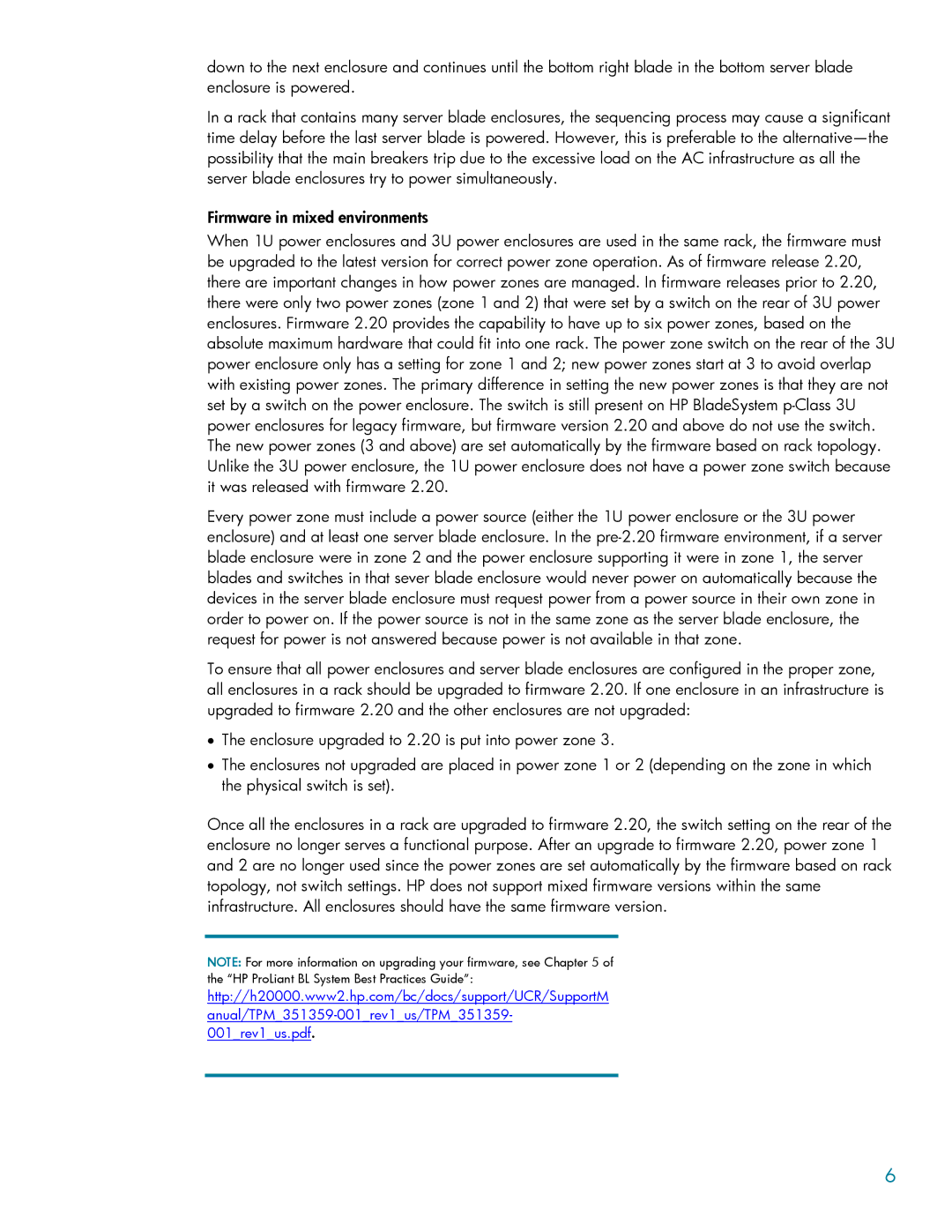
down to the next enclosure and continues until the bottom right blade in the bottom server blade enclosure is powered.
In a rack that contains many server blade enclosures, the sequencing process may cause a significant time delay before the last server blade is powered. However, this is preferable to the
Firmware in mixed environments
When 1U power enclosures and 3U power enclosures are used in the same rack, the firmware must be upgraded to the latest version for correct power zone operation. As of firmware release 2.20, there are important changes in how power zones are managed. In firmware releases prior to 2.20, there were only two power zones (zone 1 and 2) that were set by a switch on the rear of 3U power enclosures. Firmware 2.20 provides the capability to have up to six power zones, based on the absolute maximum hardware that could fit into one rack. The power zone switch on the rear of the 3U power enclosure only has a setting for zone 1 and 2; new power zones start at 3 to avoid overlap with existing power zones. The primary difference in setting the new power zones is that they are not set by a switch on the power enclosure. The switch is still present on HP BladeSystem
Every power zone must include a power source (either the 1U power enclosure or the 3U power enclosure) and at least one server blade enclosure. In the
To ensure that all power enclosures and server blade enclosures are configured in the proper zone, all enclosures in a rack should be upgraded to firmware 2.20. If one enclosure in an infrastructure is upgraded to firmware 2.20 and the other enclosures are not upgraded:
•The enclosure upgraded to 2.20 is put into power zone 3.
•The enclosures not upgraded are placed in power zone 1 or 2 (depending on the zone in which the physical switch is set).
Once all the enclosures in a rack are upgraded to firmware 2.20, the switch setting on the rear of the enclosure no longer serves a functional purpose. After an upgrade to firmware 2.20, power zone 1 and 2 are no longer used since the power zones are set automatically by the firmware based on rack topology, not switch settings. HP does not support mixed firmware versions within the same infrastructure. All enclosures should have the same firmware version.
NOTE: For more information on upgrading your firmware, see Chapter 5 of the “HP ProLiant BL System Best Practices Guide”:
http://h20000.www2.hp.com/bc/docs/support/UCR/SupportM
6
